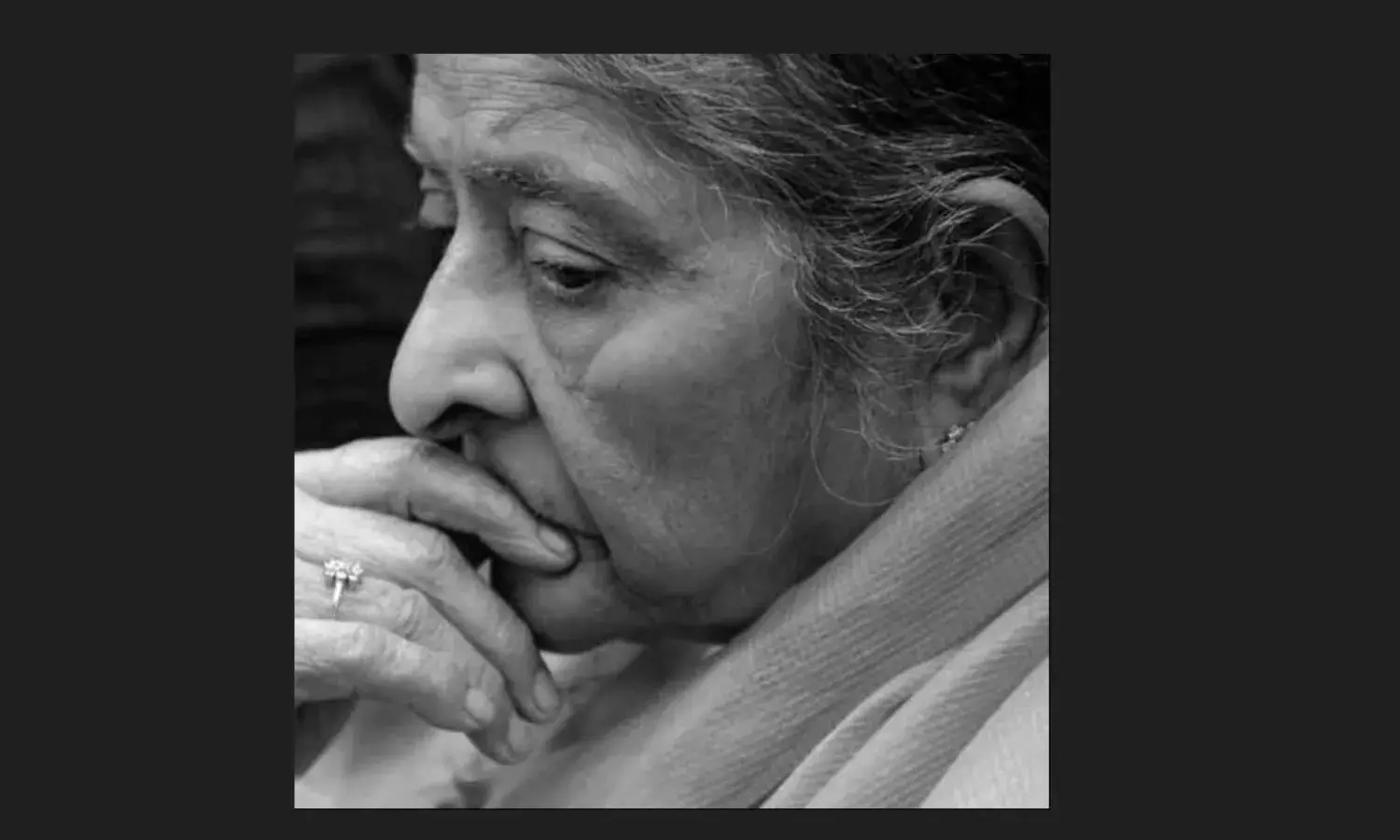A Beacon Of Courage And Determination
Zakia Jafri kept the spotlights on justice

The persona of Zakia Jafri can be described in one word – courage. Wife of former Congress parliamentarian Ehsan Jafri who was brutally killed along with 68 others in the infamous Gulbarg Society massacre of Ahmedabad in 2002, she passed away on Saturday while visiting her daughter in the city. Zakia was the voice of hundreds of victims of the Gujarat riots as she fought for justice.
The violence had followed the burning of 59 Hindu karsevaks travelling in the S6 coach of Sabarmati Express on February 27 when they were returning from Ayodhya. The fire at Godhra was followed by large-scale violence in Ahmedabad and other places. The communal frenzy hit the lives of innocent people as violence does not differentiate between victims and communities. The massacres of Muslims at Naroda Patiya and Gulbarg Society had stood out as the two most heinous cases of large scale killings.
Zakia Jafri came across as any pious elderly lady from an Indian family. She was soft spoken but with determination in her voice. She was a towering personality who stayed the course in search of justice.
My first interaction with her was in 2003 on the evening prior to her deposition before the Justice GT Nanavati and Justice KG Shah Commission that was looking into the Godhra train burning and the subsequent violence. It was on a reporter’s instinct that I landed at an acquaintance’s house late at night to interview her for an international radio service.
The news of her demise brings back her soft voice as she narrated what had happened at Gulbarg Society on the day after the Godhra incident. She spoke of how the women and children of the society had taken refuge at the Jafri house after the premises had been surrounded by a mob baying for blood. They thought that the house of Ehsan Jafri was the safest as he was a former Member of Parliament who could use his influence to save their lives. But these people were proved wrong as Jafri was killed in a barbaric manner.
His widow spoke quietly, recounting the horror, eyes brimming with tears. She spoke of how ‘Jafri Sahib’, as she referred to him, had tried to prevent the massacre. Her answers were frequently qualified by the sentence ‘Nyay to milna chahiye’ (the victims must get justice). The meeting ended around midnight with the visibly tired lady thanking everyone. She had not been well at the time.
The next morning saw a heavy Police deployment at the Shahibaug Circuit House where the victims of Gulbarg Society massacre were to depose before the Nanavati – Shah Commission. Zakiar Jafri made an impassioned appeal to the two retired judges heading the Commission to ensure justice.
After the depositions were over for the day, she was requested by reporters for a brief interview in an adjoining room. Just as she was about to speak Babu Bajrangi who was later convicted in the Naroda Patiya massacre case barged in hurling obscenities. The crowd accompanying him refused to let her speak and she had to be whisked away for her own safety, even as Bajrangi’s men pounded on the car.
Zakia Jafri became a pillar of support for the victims and their families. She was always there at their meetings, and never failed to attend the anniversary of the Gulbarg Society massacre every year. There was no bitterness, no anger, just a quiet resolve to do all that was in her power to get justice. In that lay her courage as she never held back, never retreated despite tremendous pressure, and while often disappointed with court rulings, kept the hope alive through her appeals and counter appeals.
Zakia Jafri’s eyes were sorrowful. But she did not allow grief to break her. She was kind and gentle to all around, and despite her age and growing infirmities she reached out for justice. As she said repeatedly, that is all she was looking for. Retribution and accountability, words that go with true justice.
Zakia Jafri is remembered by all who knew her as a woman of courage, an inspiration to all. She lived with her son in Surat and when she was travelling for her court cases or meetings was always worried about not being buried next to her husband at Ahmedabad. Although Ehsan Jafri’s remains were never really found, his family buried a fistful of earth at the Kutbi Mazaar about four kilometres from the home that he and his wife had built. She breathed her last at 86, and has been laid to rest by her daughter and son beside her husband, her one wish fulfilled.
Zakia’s death was largely buried in the inside pages of the newspapers as the presentation of the union budget hogged the limelight. Media coverage or not she will never be forgotten as the one beacon of hope fighting for justice relentlessly for a full two decades. From 2002 till 2022 Zakia Jafri did not give up until, as her son said, “,.. till the Supreme Court verdict (in 2022) she had hoped that she would get justice.”



